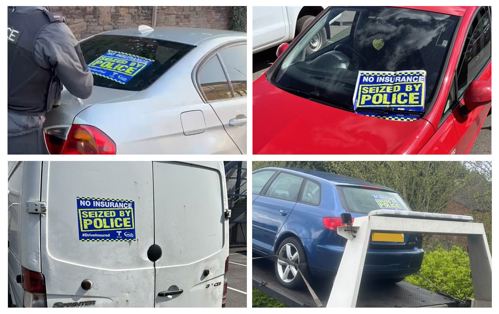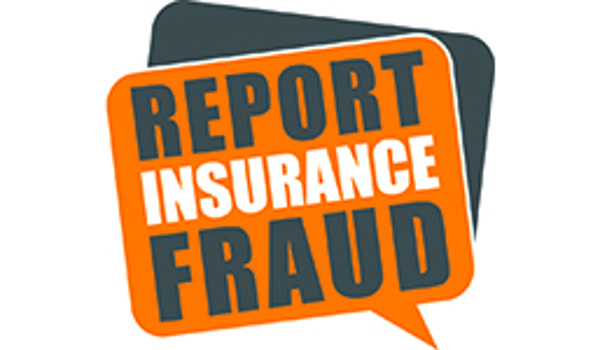Don't get it ghosted! New drivers warned of rise in fake car insurance deals on social media

Young drivers are encouraged to watch out for bogus car insurance deals being sold online by fraudsters known as ‘Ghost Brokers’, which are on-the-rise and can leave victims out of pocket and facing criminal consequences for driving uninsured.
New figures released today by the Insurance Fraud Bureau (IFB) show the consumer con has grown by over 50% in the past two years. Ghost Brokers are increasingly advertising bogus deals on popular sites such as Facebook, Instagram, SnapChat and TikTok, and new drivers – including those insuring their first car and learners who need learner cover – are most at risk.
To help protect young drivers from this devastating issue, the ABI, City of London Police and the IFB, in association with the government’s Stop! Think Fraud national campaign, have launched a campaign to raise awareness of the signs of Ghost Broking and encourage the public to report it to CheatLine.
Ursula Jallow, Director at the IFB, said:
“New drivers are caught out by Ghost Brokers because they face higher premiums and have had less experience in purchasing insurance policies for themselves, which unfortunately means they are more likely to be attracted to car insurance deals, that are too good to be true.
“The impact is devastating. We’ve seen victims lose thousands of pounds, have their identities stolen, their confidence and self-esteem shattered, and in some cases, they have even had their car seized for driving uninsured.
“It’s really important that we spread the word to help protect young drivers from Ghost Brokers. We’re proud to be supported by the Stop! Think Fraud national campaign, in partnership with the ABI and IFED, to bring attention to this issue.”
What is Ghost Broking and its consequences?
Ghost Brokers are fraudsters pretending to be real insurance brokers. They often promote their bogus deals through social media and sometimes on fake insurance company websites. They then encourage communications through encrypted messaging software like WhatsApp to keep illegal dealings in private.
The fraudsters will exploit the high costs young drivers face, along with their lack of experience when it comes to buying insurance, with promotions that feel irresistible to the public.
This involves marketing themselves towards young social media users, promising to offer the lowest rate on the market - even if the driver has convictions - and offer up-front quotes, despite the fact insurance is meant to be priced based on the risk of the individual.
Insights also show that learner drivers who may need to insure a car that they are practicing in, are also being targeted with fraudulent deals.
The policies are taken out using stolen details which belong to people who are cheaper to insure, which are then sold on at a reduced rate, or they may simply be a photoshopped piece of paper; in both instances, the policy is invalid and the victim is driving uninsured.
The scale and impact of the issue is vast with thousands of young people believed to be getting targeted by Ghost Brokers each day. A YouGov survey (commissioned by IFB) found one in five (18%) 18-24 year olds have used social media to search for car insurance.
Falling for a Ghost Broker’s deal has devastating consequences. Victims can lose hundreds and in some cases, thousands of pounds. And they will be driving without valid insurance, which means they can have their car seized by police, receive 6 licence points, a £300 fine, and a court referral where they may get an unlimited fine and/or a driving ban.
 Uninsured vehicles seized by police after the drivers were found to have purchased fraudulent policies from Ghost Brokers. Image: MIB (Motor Insurers’ Bureau)
Uninsured vehicles seized by police after the drivers were found to have purchased fraudulent policies from Ghost Brokers. Image: MIB (Motor Insurers’ Bureau)
Ghost Brokers also steal the personal information of their victims to use in further financial crime, such as banking fraud.
Figures released today confirm around 115,000 fraudulent motor insurance policies were detected by the IFB in partnership with the insurance industry between 2023-24, with Ghost Brokers believed to be responsible for thousands of cases.
It's estimated that fraudulent insurance applications cost the UK economy over £1bn a year.
Fraud Minister Lord Hanson, said:
“I want to thank the ABI, the IFB and City of London Police for warning drivers of the risks they face if they end up purchasing fake motor insurance, and driving without proper cover. Last year, we published the Insurance Fraud Charter to combat scams like ghost broking, and we will keep working with our partners in law enforcement and the industry to stamp out this despicable crime.
“This type of scam demonstrates exactly why our national campaign is called Stop! Think Fraud. In a world where we are all looking for bargain deals, we have to stop and think whether the offers we see online are too good to be true. Young people especially need to be aware that the scammers are deliberately targeting them through their social media feeds with attractive and authentic looking offers which will leave them ripped off and driving uninsured. I also urge the tech companies who run those social media platforms to go further and faster to stop fraudulent offers being advertised on their sites.
“To anyone with concerns about how to keep themselves safe online and stay ahead of the scams, search Stop! Think Fraud to find out more.”
Detective Chief Inspector Nik Jethwa, from the City of London Police’s Insurance Fraud Enforcement Department (IFED), said:
“The data released today is a stark reminder that ghost brokers are using immoral tactics to defraud members of the public. With cheap, yet completely fake car insurance deals being sold across social media, it’s concerning to think that there are many young victims being left out of pocket and facing the consequences of driving without insurance.
“Always be cautious when buying insurance. Ask yourself: is the insurance broker you are dealing with really who they say they are? If you aren’t sure, check the lists of authorised brokers at the Financial Conduct Authority and British Insurance Brokers’ Association websites.”
Mark Allen, ABI Head of Fraud and Financial Crime, said:
“With many households looking to cut costs, no one can afford to fall foul to fraudsters. In our increasingly digital world, we recognise that young people including students may be particularly vulnerable to ghost brokers who advertise fraudulent insurance deals online or across social media. But it’s important to remember that anyone, no matter their age, can be a victim of insurance fraud. If you’re looking for cover online, we recommend contacting insurance companies directly or checking the Financial Services Register to verify broker details. The golden rule is to never act in haste – if a deal seems too good to be true, then it probably is.”
How can I protect myself?
Know the signs
- The policy may be unrealistically cheap, with an up-front quote.
- The seller only wants to communicate in private DMs on social media or WhatsApp.
- The advert may look unprofessional.
- The seller doesn’t have a legitimate website, UK landline number or address.
Do your checks
- Check the insurance broker is registered with the British Insurance Brokers' Association (BIBA).
- If dealing with an insurer, check they are a member of the Motor Insurers' Bureau (MIB).
- Whether broker or insurer, check they are registered with the Financial Conduct Authority (FCA).
Insurance scams can be reported to the IFB's confidential CheatLine online or via a phoneline (powered by CrimeStoppers) at 0800 422 0421.


